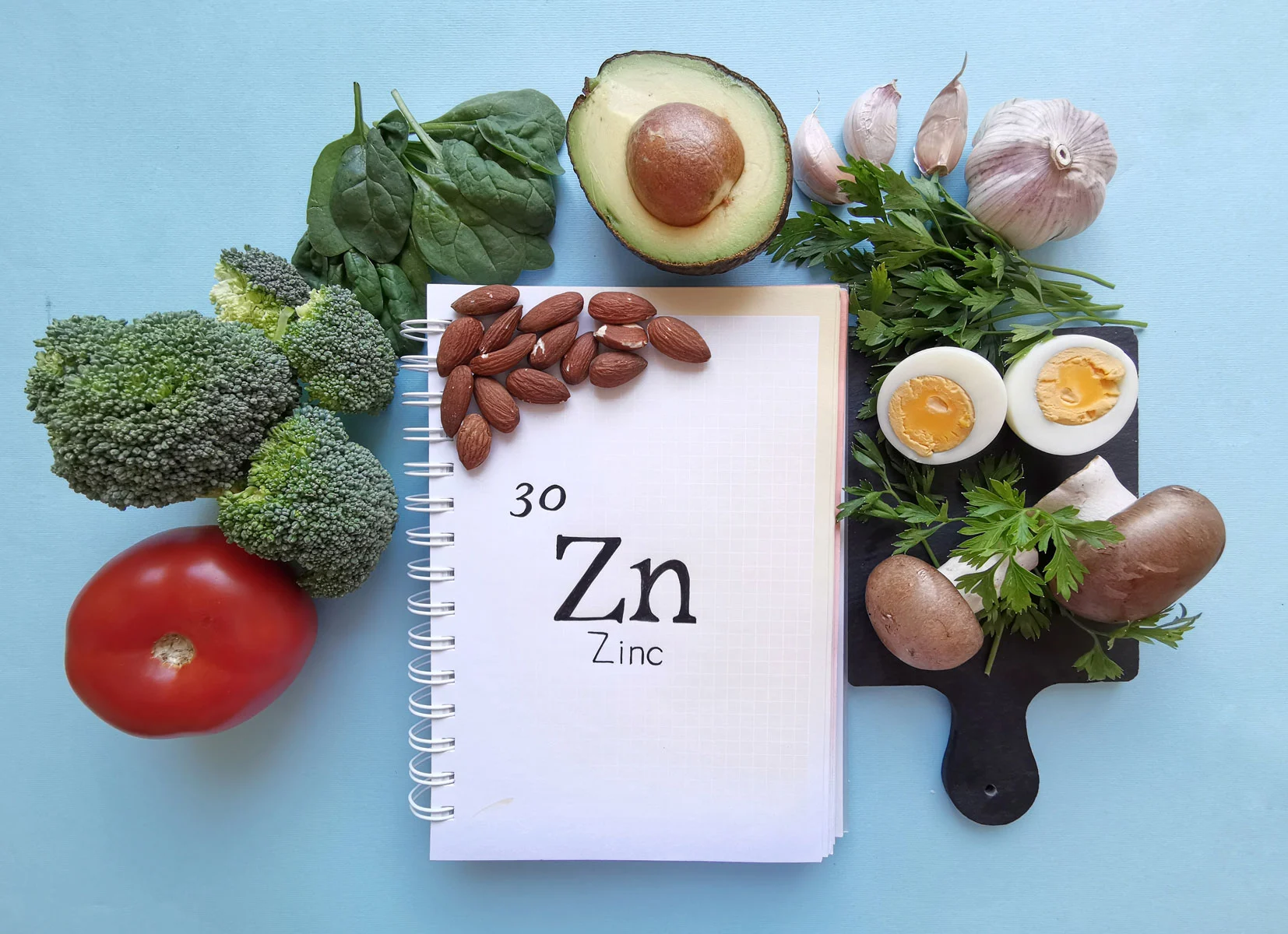Benefits of Zinc
Introduction to Zinc
Zinc is an essential mineral that plays a crucial role in numerous biological processes within the body. It is involved in various enzymatic reactions, immune function, wound healing, DNA synthesis, and cell division. In this comprehensive guide, we will delve into the myriad benefits of zinc, its dietary sources, recommended intake, potential health risks, and answer frequently asked questions to provide a thorough understanding of this essential nutrient.
Importance of Zinc in Health
Chemical Properties and Functions
Zinc is a trace element with the atomic number 30 and atomic weight 65.38. It is primarily found in cells throughout the body, where it acts as a cofactor for over 300 enzymes involved in various metabolic pathways. Zinc is essential for protein synthesis, cell growth and repair, immune function, and antioxidant defense.
Biological Functions
Zinc plays diverse roles in the body, including
- Immune Support: Zinc is crucial for the development and function of immune cells, helping to combat infections and regulate immune responses.
- Wound Healing: Zinc is involved in tissue repair and regeneration, promoting the healing of wounds and injuries.
- DNA Synthesis: Zinc is necessary for DNA synthesis and cell division, contributing to growth and development.
- Antioxidant Activity: Zinc acts as an antioxidant, protecting cells from oxidative damage caused by free radicals.
Health Benefits of Zinc
Immune Support
Zinc plays a vital role in maintaining a healthy immune system by supporting the function of immune cells such as T cells, B cells, and natural killer cells. Adequate zinc levels are essential for immune responses to infections and the production of antibodies.
Wound Healing
Zinc is necessary for the synthesis of collagen, a structural protein that is essential for wound healing. It promotes the proliferation and migration of skin cells, enhances tissue repair, and
Cognitive Function
Zinc plays a role in neurotransmission and synaptic plasticity, influencing cognitive function, learning, and memory. Adequate zinc levels are essential for maintaining optimal brain health and cognitive performance.
Growth and Development
Zinc is essential for growth, development, and reproduction, particularly during periods of rapid growth such as infancy, childhood, and adolescence. It is involved in bone formation, protein synthesis, and hormonal regulation.
Antioxidant Defense
Zinc acts as an antioxidant, protecting cells from oxidative damage caused by free radicals and reactive oxygen species. It helps maintain the balance between oxidants and antioxidants in the body, reducing the risk of oxidative stress-related diseases.
Sources of Zinc
Dietary Sources
Zinc is found in a variety of foods, including:
- Meat: Beef, pork, lamb, and poultry are rich sources of zinc.
- Seafood: Oysters, crab, lobster, and shrimp contain high levels of zinc.
- Legumes: Beans, lentils, chickpeas, and peas are good plant-based sources of zinc.
- Nuts and Seeds: Pumpkin seeds, sesame seeds, and almonds are rich in zinc.
- Whole Grains: Whole wheat, oats, and quinoa provide zinc along with other nutrients.
Supplements
Zinc supplements are available in various forms, including zinc gluconate, zinc sulfate, and zinc acetate. They are commonly used to treat zinc deficiency or as preventive measures in individuals at risk of deficiency.
Recommended Intake of Zinc
Dietary Guidelines
The recommended dietary allowance (RDA) for zinc varies depending on age, sex, and life stage. The following are the RDAs for zinc established by the Institute of Medicine (IOM):
- Infants (0-6 months): 2 mg/day
- Infants (7-12 months): 3 mg/day
- Children (1-3 years): 3 mg/day
- Children (4-8 years): 5 mg/day
- Males (9-13 years): 8 mg/day
- Females (9-13 years): 8 mg/day
- Males (14-18 years): 11 mg/day
- Females (14-18 years): 9 mg/day
- Adult Males (19 years and older): 11 mg/day
- Adult Females (19 years and older): 8 mg/day
- Pregnant Women: 11 mg/day
- Breastfeeding Women: 12 mg/day
Factors Influencing Zinc Requirements
Several factors can influence an individual’s zinc requirements, including age, sex, pregnancy, lactation, dietary intake, and health status. Certain conditions such as gastrointestinal disorders, alcoholism, and vegetarianism may increase the risk of zinc deficiency and require higher intake levels.
Symptoms of Zinc Deficiency
Common Signs and Symptoms
Zinc deficiency can manifest in various ways, including:
- Impaired Growth: Slowed growth and development in children.
- Delayed Wound Healing: Slow healing of wounds and injuries.
- Hair Loss: Thinning hair or hair loss.
- Skin Problems: Dry, rough, or inflamed skin.
- Poor Immune Function: Increased susceptibility to infections.
- Loss of Appetite: Reduced appetite or changes in taste perception.
Health Risks of Deficiency
In addition to the symptoms mentioned above, zinc deficiency can increase the risk of various health problems, including immune dysfunction, growth retardation, cognitive impairment, reproductive disorders, and dermatological conditions.
Frequently Asked Questions (FAQs) about Zinc
Can zinc supplements prevent or treat the common cold?
While some studies suggest that zinc supplementation may reduce the duration and severity of cold symptoms, evidence is inconclusive, and further research is needed to confirm its effectiveness.
Are there any risks associated with zinc supplementation?
Excessive zinc intake from supplements can lead to adverse effects such as nausea, vomiting, diarrhea, and impaired copper absorption. It is essential to follow recommended dosage guidelines and consult healthcare professionals before starting supplementation.
Can zinc improve fertility and reproductive health?
Zinc plays a crucial role in reproductive health, sperm production, and fertility in both men and women. Adequate zinc levels are essential for normal reproductive function and pregnancy outcomes.
Can zinc supplements improve skin health and acne?
Some studies suggest that zinc supplementation may help reduce acne severity and improve overall skin health. Zinc has anti-inflammatory and antioxidant properties that may contribute to its beneficial effects on skin conditions.
Is there a link between zinc deficiency and hair loss?
Zinc deficiency has been associated with hair loss and thinning hair. Adequate zinc levels are essential for maintaining healthy hair follicles and promoting hair growth.
Can zinc help regulate blood sugar levels in individuals with diabetes?
Emerging research suggests that zinc may play a role in glucose metabolism and insulin sensitivity. Zinc supplementation may help improve glycemic control and reduce the risk of complications in individuals with diabetes.
Are there any specific dietary strategies to enhance zinc absorption?
Certain dietary factors can affect zinc absorption, such as phytates found in whole grains and legumes, which can inhibit zinc absorption. Consuming zinc-rich foods along with sources of vitamin C may enhance zinc absorption due to its role in forming soluble complexes.
- Lip Flip Treatment Near Kempton Park, Surrey - May 9, 2025
- Best THC-Infused Teas And Coffees For A Chill Morning - May 8, 2025
- Chin Augmentation With Chin Filler Near Titsey, Surrey - May 7, 2025

